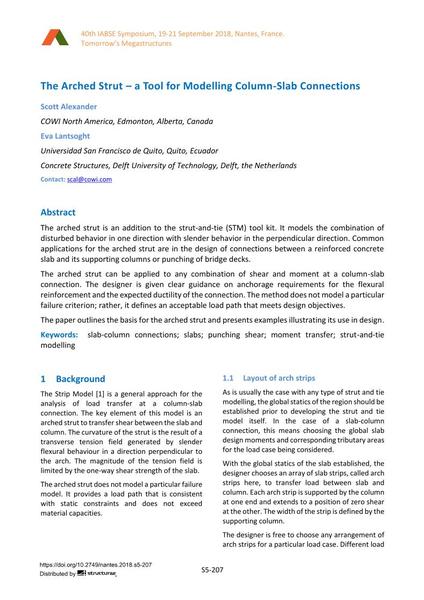The Arched Strut – a Tool for Modelling Column-Slab Connections

|
|
|||||||||||
Détails bibliographiques
| Auteur(s): |
Scott Alexander
(COWI North America, Edmonton, Alberta, Canada)
Eva Lantsoght (Universidad San Francisco de Quito, Quito, Ecuador; Concrete Structures, Delft University of Technology, Delft, the Netherlands) |
||||
|---|---|---|---|---|---|
| Médium: | papier de conférence | ||||
| Langue(s): | anglais | ||||
| Conférence: | IABSE Symposium: Tomorrow’s Megastructures, Nantes, France, 19-21 September 2018 | ||||
| Publié dans: | IABSE Symposium Nantes 2018 | ||||
|
|||||
| Page(s): | S5-207 | ||||
| Nombre total de pages (du PDF): | 8 | ||||
| DOI: | 10.2749/nantes.2018.s5-207 | ||||
| Abstrait: |
The arched strut is an addition to the strut-and-tie (STM) tool kit. It models the combination of disturbed behavior in one direction with slender behavior in the perpendicular direction. Common applications for the arched strut are in the design of connections between a reinforced concrete slab and its supporting columns or punching of bridge decks. The arched strut can be applied to any combination of shear and moment at a column-slab connection. The designer is given clear guidance on anchorage requirements for the flexural reinforcement and the expected ductility of the connection. The method does not model a particular failure criterion; rather, it defines an acceptable load path that meets design objectives. The paper outlines the basis for the arched strut and presents examples illustrating its use in design. |
||||
